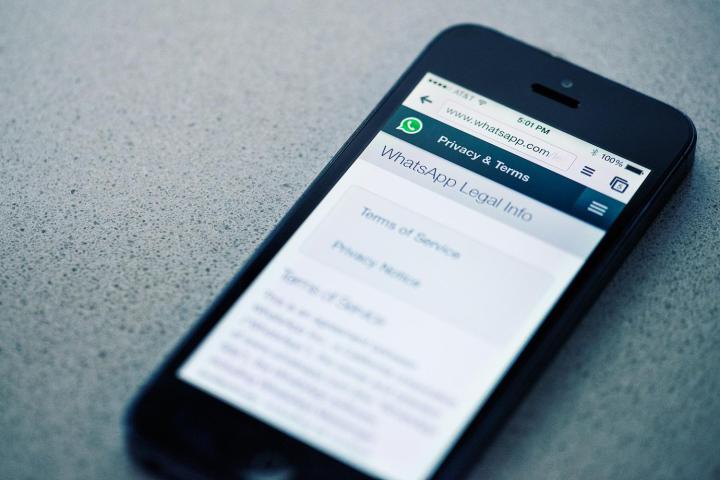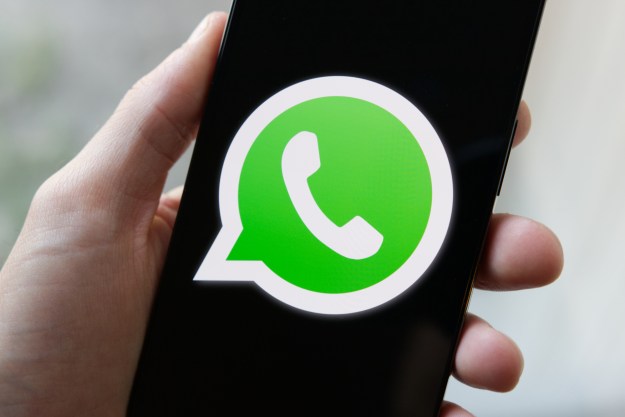
Facebook and privacy – now those are two words that look uncomfortable next to one another. But for WhatsApp, the wildly popular global messaging app just purchased by the social network behemoth for the unfathomable sum of $19 billion, the privacy relationship is entirely different. In fact, most accounts peg WhatsApp as one of the most privacy-conscious services out there, at least among those that have 450 million active users.
The question, then, is, what will happen to WhatsApp user privacy now that the messaging service is owned by a company that has repeatedly brushed privacy concerns into the background?
The short answer, of course, is that we just don’t know – and it’s likely the teams at Facebook and WhatsApp don’t know yet either. So let’s dig into what we do know, and see if we can’t get a sense of where this train is headed.
“We don’t save any messages on our servers, we don’t store your chat history.”
“Nobody should have the right to eavesdrop, or you become a totalitarian state – the kind of state I escaped as a kid to come to this country where you have democracy and freedom of speech,” Koum told Wired UK. “Our goal is to protect it. We have encryption between our client and our server. We don’t save any messages on our servers, we don’t store your chat history. They’re all on your phone.”
This storyline is further backed by venture capitalist Jim Goetz of Sequoia Capitol, which funded WhatsApp, who calls the company’s privacy focus a “contrarian approach shaped by Jan’s experience growing up in a communist country with a secret police.”
“Jan’s childhood made him appreciate communication that was not bugged or taped,” writes Goetz. “Facebook has assured Jan and [WhatsApp co-founder Brian Acton] that WhatsApp will remain ad free and they will not have to compromise on their principles.” And because Koum now sits on Facebook’s board of directors, Goetz argues, he’ll be in a position to ensure that Facebook sticks to its promises.
Facebook, for its part, is sticking to the line that snagging user data was not the impetus for buying WhatsApp. In a conference call with the press, Facebook CFO David Ebersman said that WhatsApp user data, like geolocation, “hasn’t been a top priority and won’t be.” Both Koum and Facebook CEO Mark Zuckerberg have repeatedly assured WhatsApp users that “nothing” will change.
So far, so good, right? Well – almost. Since the acquisition, some critics say that WhatsApp’s privacy-friendly reputation is nothing more than a convenient ruse. PandoDaily’s Yasha Levine, for example, argues that Koum’s “dramatic narrative” has given his company a reputation this “is just not true.”
Facebook didn’t become the world’s second-largest advertising platform by ignoring the data at its finger tips.
Ouch.
Now, I wouldn’t call WhatsApp’s privacy track record “horrible,” or say that the company is “aggressively incompetent” – clearly that’s just not true, and there 19 billion reasons to prove it. But Levine does have a point: After the launch of an Android app called WhatsAppSniffer, which allowed anyone using the same Wi-Fi connection as a WhatsApp user to spy on text, video, and photos sent using the app, it took the company a year to start encrypting user messages.
Unfortunately for users, cybersecurity experts discovered that WhatsApp’s encryption contained amateur-level flaws that enabled anyone worth their weight in algorithms to decrypt user messages.
WhatsApp’s apparent struggles with protecting users’ private communications, along with its acquisition by Facebook, motivated Germany’s privacy regulator to this week urge citizens to use other messaging apps that may do a better job at privacy protections.
So, WhatsApp might not be the best at things like encryption – but with $19 billion and the ear of Facebook’s engineers, that could easily become a thing of the past, if it hasn’t already. The real thing we want to know is, will Facebook start mining WhatsApp user data – from messages to location – to serve up ads? Will you mention House of Cards in a private WhatsApp text message, and see ads for the show on your Facebook page?
At this point, we can only wait and see. But I’ll leave you with this: Facebook didn’t become the world’s second-largest advertising platform by ignoring the wealth of data at its finger tips. And it would, at the very least, be odd for it to start now.
Editors' Recommendations
- Meta’s ChatGPT killer is taking over your favorite apps
- How to know if someone blocked you on WhatsApp
- How to record a WhatsApp call on Android or iOS
- WhatsApp now lets you send self-destructing voice messages
- WhatsApp used to be one of my favorite apps. Now, I can’t stand it
